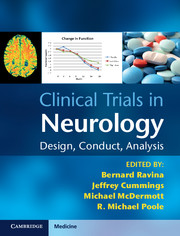24 - Amyotrophic Lateral Sclerosis
from Section 6
Published online by Cambridge University Press: 05 May 2012
Summary
Keywords
- Type
- Chapter
- Information
- Clinical Trials in NeurologyDesign, Conduct, Analysis, pp. 273 - 283Publisher: Cambridge University PressPrint publication year: 2012

